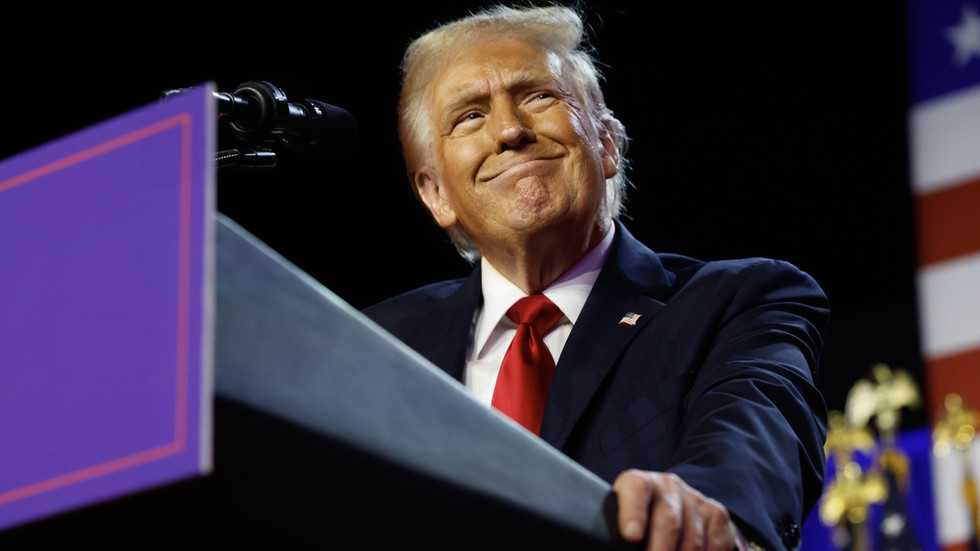Former U.S. President Donald Trump has reportedly secured his second term in office following significant media projections indicating his victory after winning the critical state of Wisconsin. This decisive win contributed ten electoral votes to Trump, allowing him to surpass the essential threshold of 270 electoral votes needed for presidency. Trump’s victory announcement came hours earlier, during which he expressed confidence that he would also clinch the popular vote once all ballots are counted. Wisconsin has historically been a pivotal battleground state; it played a major role in the previous elections and significantly influences the overall outcome due to its allocation of electoral votes to the winning candidate.
In the 2016 presidential race, Trump successfully captured Wisconsin from Democratic challenger Hillary Clinton, but in 2020, he lost the state to Joe Biden. The importance of Wisconsin in this electoral cycle was emphasized by both Trump and his Democratic opponent, Kamala Harris, who geared their campaigns toward swaying voters in this crucial state. As the Vice President under Biden, Harris is anticipated to address her supporters and respond to the election results later in the day. The battle for Wisconsin and other swing states continues to underline the dynamics of American electoral politics, where such results are paramount in determining victory.
Global reactions to Trump’s projected win have begun to surface, with leaders from various countries congratulating him on his return to the presidency. Messages of support came from figures such as British Prime Minister Keir Starmer, French President Emmanuel Macron, European Commission President Ursula von der Leyen, Indian Prime Minister Narendra Modi, and Israeli Prime Minister Benjamin Netanyahu. In contrast, the Kremlin’s response, through spokesman Dmitry Peskov, revealed hesitance regarding whether President Vladimir Putin plans to extend congratulations. The relationship between the U.S. and Russia remains tense, with Peskov reiterating that the U.S. is viewed as a “deeply unfriendly nation” that plays a role in conflicts against Russia.
Amidst these congratulations, Trump’s electoral victory sparks numerous discussions regarding his policies and potential direction for the next term. The implications of his presidency extend beyond domestic affairs, as international relationships and collaborations will likely be influenced by his administrative approach. Following previous tensions during his first term, particularly regarding trade, international agreements, and military alliances, global leaders will closely observe how Trump will navigate these issues in the coming years. His administration’s actions will determine the nature of U.S. engagement with other countries and may reshape alliances that have been in place.
Internally, Trump’s administration is likely to focus on key issues that resonate with his base, such as immigration policies, healthcare reforms, and economic recovery strategies. His focus on strengthening his supporters and addressing their concerns could lead to further polarization in U.S. politics. The Democratic Party, with leaders like Kamala Harris, will need to reassess strategic approaches to counter Trump’s influence and message, particularly in battleground states that could swing elections. As they regroup, evaluating strategies that appeal to a broader voter base while maintaining core progressive values will be imperative.
As the final electoral processes unfold and votes continue to be counted, the full implications of Trump’s reelection will become clearer. His victory reflects a substantial divide in American politics, underscoring the necessity for both parties to confront pertinent issues that resonate with their constituents. The current political landscape indicates that the U.S. will experience a dynamic and potentially contentious political period ahead as Trump steps back into the presidential role, prompting immediate considerations for domestic and global policy.

